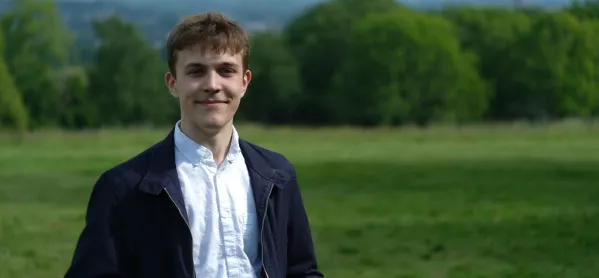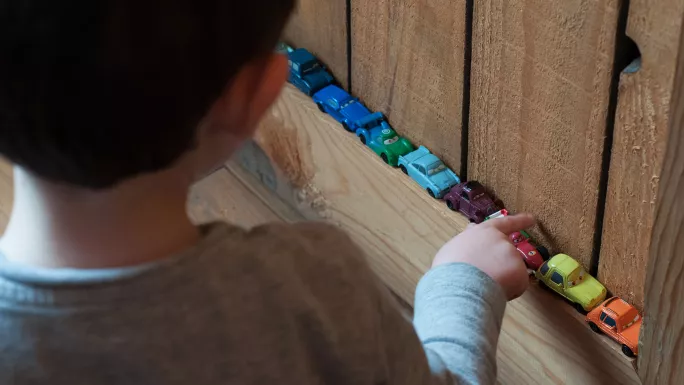I remember my first day of nursery. It was terrifying and chaotic. Children screeching during playtime, toys flying everywhere. I was baffled, lost and confused.
My mother had noticed peculiarities in my behaviour from a young age. I would forget to make eye contact with people, for example.
Then, at the age of two, I was diagnosed with Asperger’s Syndrome.
Quick read: Autism: why are we still not spotting the girls?
Quick listen: Three golden rules for supporting autistic pupils
Want to know more? Look beyond the label
At primary school, I was the boy lying on the bench in the playground talking to the teaching assistants while others played.
By secondary school, I had developed a deep aversion to the blaring sound of the bells, which screeched in my ears.
Social isolation
I was left out of social groups for being clumsy and awkward, and I struggled to interact with peers who had little in common with me.
The lowest point came during a geography trip to France. A group of bullies stole my clothes, ran them under the shower and put them back in my suitcase. The incident filled me with fury and I punched a hole in the hostel wall.
I struggled in subjects that did not relate to my specific preoccupations. I thought that the best way to combat this was to cover my ears, close my eyes and imagine that I was somewhere tranquil, where my thoughts would be able to roam free.
I wish I’d been able to understand autism sooner, but it was difficult to piece together what it meant to be autistic.
When autism gets discussed, it is often framed with pity; the voices of those that are actually diagnosed are never heard.
But now it gives me a sense of purpose: to use what I was born with to my advantage.
Turning point
Like many with this life-long condition, I see, hear and experience the world differently from people without autism. There is no “cure” but, with the right support, I have been able to live a fulfilled and active life, thanks to a passion that has remained with me: writing.
Once, we had to write a piece of poetry during an English class, and I did mine on recent poverty figures (we were reading Great Expectations by Charles Dickens that week, which I was absorbed by).
I read my poem out loud to the class, got a rousing reception from my peers (who had not always been my kindest critics until this point) and received the highest mark.
It was from there that everything snapped into place. Having previously been directionless, I found a new love. Writing enabled me to communicate in a way I couldn’t always do at that time through the spoken word.
My English teacher, Ben McDermott, said he was reviving the student magazine and wanted me to volunteer as a reporter.
I took the analytical skills I had learned in class to my school magazine and TV station. I found a knack for news and became highly proficient in IT.
A bright future
There are obstacles to being on the spectrum, particularly in high-tension scenarios. But my confidence is gradually growing and I am seeing genuine improvement in my people skills.
Never did I expect a decade ago that I would be in the position I am in now. I am reading politics at the University of Kent in Canterbury, as well as writing for my student newspaper, InQuire, where I will become editor for the 2019-20 academic year.
In the past, no one understood why I could not cope: why I seemed dull-witted and abnormal, never having the words to explain the feelings no one else seemed to experience.
I now know I should never have tried to fit in, but instead embraced my condition. It has helped me gather more friends, build a better relationship with my family, read more.
Most importantly, it has given me a new direction to help others see themselves more clearly.
I am glad of my condition and that I have been able to put my past struggles to good use.
Being diagnosed with autism is the best thing that has ever happened to me. I am not simply a “broken normal”.
We are extraordinary people capable of extraordinary things.
Bill Bowkett is a student at the University of Kent, and was named Outstanding Pupil of 2017 by the Shine School Media Awards. You can apply to the Shine media awards at www.shine-schoolawards.org

